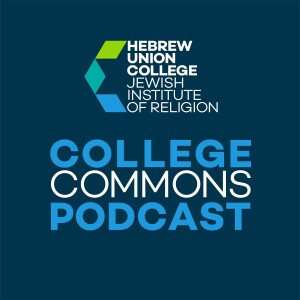
Rabbi Wayne Allen: Jewish Thinking About Good And Evil
 2021-11-22
2021-11-22
Download
Right click and do "save link as"
Controversy, confusion and confidence in God’s goodness, from antiquity to present.
After being graduated from New York University with a B.A. in philosophy and Phi Beta Kappa, Rabbi Wayne Allen, Ph.D. attended the Jewish Theological Seminary of America where he earned a Masters degree in Rabbinics and went on to receive rabbinic ordination. He served as a congregational rabbi for 35 years, taking on postings in New York City, Los Angeles, and Toronto. The Jewish Theological Seminary conferred an honorary Doctor of Divinity upon him for his years of dedicated service. Rabbi Allen was awarded a Masters degree in Philosophy from York University in Toronto where went on to earn his Ph.D.
He has taught Jews and non-Jews of all ages in formal and informal settings including the American Jewish University, the University of Waterloo, the Community Hebrew Academy of Toronto, and Camp Ramah in California. Along with Harvey Haber he wrote Giving Thanks: Graces for All Occasions. Among his interests has been Jewish Law. As the author of Perspectives on Jewish Law and Contemporary Issues and Further Perspectives on Jewish Law and Contemporary Issues as well as editor of the first two volumes of Tomeikh keHalakhah, the responsa collection of the Union for Traditional Judaism, Rabbi Allen gained recognition as an authority on the application of Jewish legal principles in a modern context. He was a frequent panelist for Jewish Values On-line and has appeared on radio and television. Other interests include cantorial music – leading to the publication of his book on The Cantor: From Mishnah to Modernity – and mediating Judaism to inquiring minds, resulting in his book Prescription for an Ailing World.
The most comprehensive book on the topic, "Thinking about Good and Evil: Jewish Views from Antiquity to Modernity" traces the most salient Jewish ideas about why innocent people seem to suffer, why evil individuals seem to prosper, and God’s role in such matters of (in)justice, from antiquity to the present.
view more
More Episodes
A New View of a Newly Productive Congress
 2023-04-11
2023-04-11
 2023-04-11
2023-04-11
Finding your family (and yourself)
 2023-03-28
2023-03-28
 2023-03-28
2023-03-28
A Grandmother’s Tale
 2023-02-14
2023-02-14
 2023-02-14
2023-02-14
The Early Zionist Spirit in Photographs
 2023-01-31
2023-01-31
 2023-01-31
2023-01-31
Who Really Was Rashi, Anyway?
 2023-01-03
2023-01-03
 2023-01-03
2023-01-03
Old-World Jewish Music, Reborn in the New
 2022-12-20
2022-12-20
 2022-12-20
2022-12-20
Radical Jewish Ethics Meets the Real World
 2022-10-25
2022-10-25
 2022-10-25
2022-10-25
Immigrant “Aliens” – Literally
 2022-08-30
2022-08-30
 2022-08-30
2022-08-30
After Roe: A Jewish Response
 2022-08-16
2022-08-16
 2022-08-16
2022-08-16
012345678910111213141516171819
Create your
podcast in
minutes
- Full-featured podcast site
- Unlimited storage and bandwidth
- Comprehensive podcast stats
- Distribute to Apple Podcasts, Spotify, and more
- Make money with your podcast
It is Free
- Privacy Policy
- Cookie Policy
- Terms of Use
- Consent Preferences
- Copyright © 2015-2024 Podbean.com





